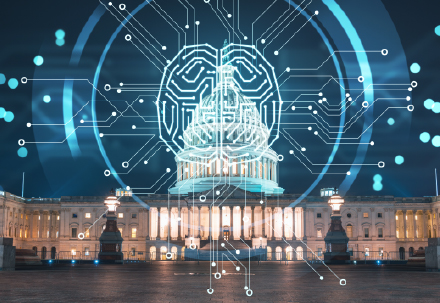Ways to influence AI Policy and Governance
WAYS TO INFLUENCE AI POLICY & GOVERNANCE

Introduction:
Artificial Intelligence (AI) has emerged as a transformative force, promising remarkable advancements across various sectors while raising complex ethical, social, and legal questions. As AI permeates deeper into our societies, the need for robust policy and governance frameworks becomes increasingly imperative. However, shaping AI policy and governance requires concerted efforts from diverse stakeholders, including policymakers, technologists, ethicists, and the broader public. In this essay, we will explore various avenues through which individuals and organizations can influence AI policy and governance, ensuring that the deployment and development of AI align with ethical principles, societal values, and human welfare.
Advocacy and Lobbying:
- Engagement with policymakers: Lobbying efforts directed towards lawmakers and government agencies can be instrumental in shaping AI policy. Advocacy groups, think tanks, and industry coalitions can engage in dialogue with policymakers, providing expertise, research, and recommendations for AI regulation.
- Public campaigns: Raising awareness among the public about the implications of AI technologies can generate pressure on policymakers to enact responsible legislation. Campaigns focused on privacy, algorithmic transparency, and bias mitigation can mobilize public support for regulatory measures.
Multistakeholder Initiatives:
- Partnerships between government, industry, and civil society: Collaborative efforts involving multiple stakeholders can facilitate the development of inclusive and balanced AI policies. Initiatives such as the Partnership on AI bring together diverse perspectives to address challenges related to AI ethics, fairness, and accountability.
- International cooperation: Given the global nature of AI development, international cooperation is essential for harmonizing regulatory frameworks and addressing cross-border challenges. Platforms like the Global Partnership on AI (GPAI) provide a forum for collaboration among nations to promote responsible AI governance.
Ethical Guidelines and Standards:
- Development of ethical frameworks: Ethical guidelines and principles can serve as a foundation for AI policy development. Ethical AI frameworks, such as those outlined by the IEEE or the EU's High-Level Expert Group on AI, provide guidance on principles such as fairness, transparency, accountability, and societal benefit.
- Standardization efforts: Standard-setting organizations can play a crucial role in establishing technical standards and best practices for AI systems. Standards related to data privacy, interoperability, and algorithmic transparency can inform regulatory policies and industry practices.
Research and Expert Input:
- Conducting research: Robust empirical research on the societal impacts of AI can inform evidence-based policymaking. Researchers can contribute insights on topics such as algorithmic bias, job displacement, and the ethical implications of autonomous systems.
- Expert advisory panels: Governments and regulatory bodies can establish advisory panels comprising AI experts, ethicists, and stakeholders. These panels can provide recommendations and feedback on proposed policies, ensuring that regulatory decisions are informed by expertise and diverse perspectives.
Public Participation and Transparency:
- Open consultation processes: Governments can engage in transparent and participatory policymaking processes, soliciting input from the public, civil society organizations, and industry stakeholders. Public consultations allow for the incorporation of diverse viewpoints and increase the legitimacy of regulatory decisions.
- Transparency in AI systems: Mandating transparency in AI systems, including disclosure of data sources, algorithms, and decision-making processes, enhances accountability and trust. Transparency measures empower users to understand and scrutinize the workings of AI systems, fostering accountability and mitigating potential harms.

- Conclusion: Influencing AI policy and governance necessitates a multifaceted approach that leverages advocacy, collaboration, research, and transparency. By actively engaging with policymakers, fostering multistakeholder initiatives, promoting ethical guidelines, conducting research, and prioritizing public participation, stakeholders can shape AI policies that prioritize human welfare, fairness, and societal benefit. As AI continues to evolve, it is imperative that we cultivate a regulatory environment that balances innovation with ethical considerations, ensuring that AI serves as a force for good in our increasingly digital world.
Compiled by: Pratiksha Bisht
Comments
Post a Comment